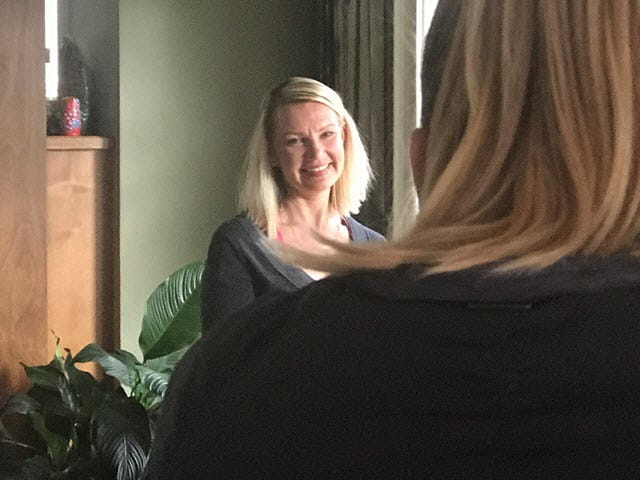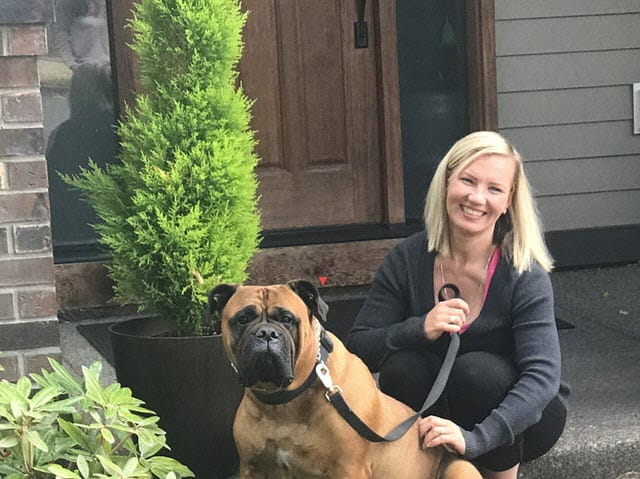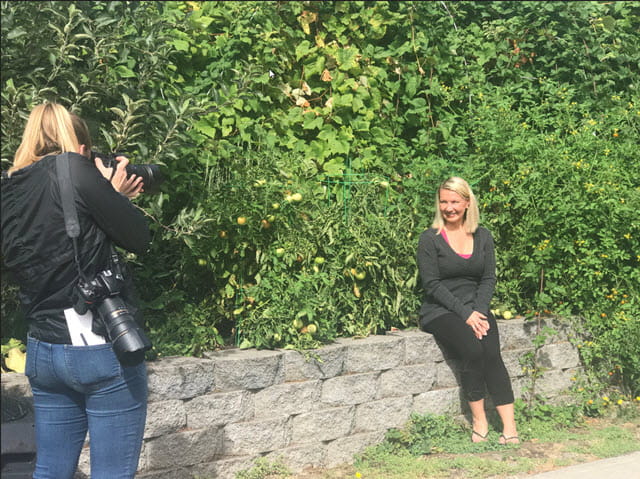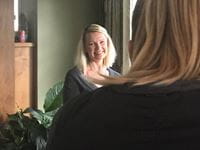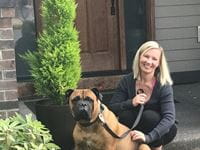Cracking the code: Genetic testing in preventing cancer
October 27, 2018
Home > About > News & Media > Story Center
Irene Gielen came to the Legacy Cancer Institute looking for answers. A family history of breast cancer weighed heavily on her mind. Her grandmother had died of breast cancer when she was 40 so Gielen was vigilant about breast self-exams. At the age of 38, doctors found a tiny suspicious spot in her breast. That’s when Gielen made a decision that would change the course of her life.
She had genetic testing. She found she was BRCA1 positive. It’s a gene mutation found in breast and ovarian cancer. It meant she had an increased lifetime risk for cancer - 40 percent for breast cancer and 50 percent for ovarian cancer. Gielen, who’s an oncology nurse says she knew almost immediately what she’d do next.
Radical game plan
She underwent a double mastectomy in 2016, followed by two breast reconstruction surgeries. “It was a very emotional and a physically painful process,” Gielen said. With time, she recovered and then took the next major step. She had her tubes and ovaries removed in August 2018. Four major surgeries in less than 2 years but Gielen says she’s relieved. She is grateful for the genetic testing as a tool to gauge her cancer risk. Genetic tests give people the information to make potentially difficult choices about their health that can prevent certain kinds of cancer.
Know your mutations
BRCA1 is one of many genetic mutations linked to an increased risk of cancer.
There are more than 1,000 mutations being studied, but only 35 have been solidly linked to an increased risk of cancer. Of those, BRCA1 and BRCA2 are most common, making up about half of breast cancer cases traced to a genetic mutation.
Women with an altered BRCA1 gene have a 50 percent to 85 percent risk of developing breast cancer by age 70, and their risk of developing ovarian cancer is about 40 percent by age 80. For BRCA2, the breast cancer risk is the same, though the risk of ovarian cancer is lower, at 16 percent to 27 percent.
However, the vast majority of breast cancer cases aren’t linked to any identified mutation. “Genetics only account for between 5 percent and 10 percent of breast cancer cases, as far as we know. But it’s a rapidly changing body of research,” said Gina Westhoff, M.D., a gynecologist oncologist at Legacy Cancer Institute.
“What we’re seeing now are that the number of genes being discovered are being better characterized, regarding how much risk they are,” Dr. Westhoff said. “More and more genes are being added to the list where we can now offer risk reducing surgery.”
Risk reducing surgery?
It’s a complicated question based on multiple conditions. How high is the risk? How old is the patient? What’s the family history? What kind of cancer is the patient at risk for? Is it an easily identifiable cancer like breast cancer, or something like ovarian or pancreatic cancer, that can’t be caught early with consistent screening.
To answer the questions, patients like Irene work with a genetic counselor who can help her understand the results and her options. What is new is our ability to massively sequence DNA in a very quick and cheap way,” Dr. Westhoff said. “Now, it’s so much easier for people to get tested, because the test is cheap.”
Genetic tests easy to find
In June, the Food and Drug Administration approved the first direct-to-consumer genetic testing called 23andMe. The FDA says it can test for 10 genetic mutations linked to certain diseases. A 23andMe kit for health and ancestry costs around $200. The sample can be collected in your home, with results sent via mail. Both Westhoff and her colleague, Cory Donovan M.D., Legacy Cancer Institute breast surgeon say consumer tests are a bit of a double-edged sword.
On the one hand, Dr. Donovan said, widespread genetic testing is “bringing out a conversation about our families." She explained, "I had a patient who recently found out that her cousin had a genetic mutation, and then she found out she had breast cancer. And she would never had been screened if she hadn’t known out about her cousin’s test,” Dr. Donovan said.
Need a guide
But there are definite concerns about the false sense of security that can come with a genetic test, especially one that doesn’t require any kind of medical counseling. For instance, 23andMe has been approved to screen for three mutations linked to breast cancer, but none of them are for the most common red flags. The test screens for a series of rarer mutations, usually found in people with Ashkenazi Jewish ancestry. Donovan said, “What I worry about is that people get tested by 23andMe, have a negative test result, and say, 'I’m safe. Done. I’m not at risk for breast cancer, I’m not going to get my screening, why would I bother?'”
Dr. Westhoff said there are other genetic panels patients can order through their doctor that are more comprehensive. Those, too, tend to be relatively affordable, and can give a more complete picture of a person’s genetic makeup. But it too, is still an incomplete picture.
“All genetic testing, you can be falsely reassured, because we only can test for what we understand right now,” Dr. Westhoff explained. “Even the bigger panels, we don’t understand all the genes very well and what the magnitude of risk is, so we don’t know what to do with that information.”
Open eyes
After Gielen tested positive for BRCA1, she convinced her sisters to also take the test. “Women in general, we’re very strong people, very strong inside physically, mentally, cognitively, spiritually,” Gielen said. “Just like I told my sisters — if there’s any kind of doubt, you do need to go get tested.” Much to her relief, her sisters tested negative.
What now?
Gielen will continue regular check-ups watching her for signs of a BRCA1 gene mutation. She may someday decide to have a hysterectomy, taking every precaution available to her. She said, “there’s a sense of control in finding out the results. You can make choices. I feel very good about my decisions that will better ensure I’m around for my family for years to come.”
Questions about genetic testing and cancer treatment options? Visit us at Legacy Cancer Institute. For information about Legacy Health, contact Kelly Love.

